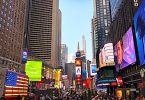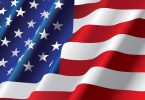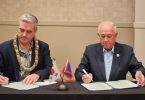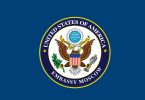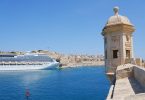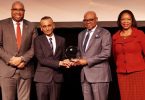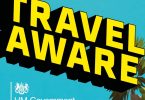The recent acts of terrorism in France have produced a great deal of fallout not only in Europe but also potentially in the US. An ever-increasing fear is the realization that a number of people who hold European passports may be involved in terrorism groups. Those supporting visas note that in a world of terrorism, the US’ first line of defense is the US consular office in a foreign nation. People who support visas note that an alert consular officer can stop a terrorist attack by denying a visa.
They also argue that visa exemption policies are too liberal, that in a multi-ethnic world, there is not necessarily a relationship between one’s nationality and one’s loyalty to a terrorist organization. Thus, there are thousands of Europeans and Canadians today with free access into the US who might be denied that access were they to hold passports not from these “preferred nations.” For these reason some US lawmakers have suggested that we reconsider our visa-waiver program for citizens of friendly nations.
According to US law any foreign national must have a visa to enter the US. The United States government, however, has granted exemptions for a visa (a visa waiver) to the citizens of numerous friendly countries around the world. This visa waver program means that citizens of such countries as the United Kingdom, Holland, Germany, and Canada do not need a visa to enter the US but can do so merely by showing their passport upon entry. Such visa waver programs are not unique to the United States and US citizens also benefit form numerous nations granting US citizens the right to enter their nations with only a passport and without having first to obtain a visa.
There is no doubt that visa waiver programs encourage not only travel but also economic growth.
The change in the granting of visas to citizens of nations who do not participate in the US visa program from one year to ten years has resulted in an explosion of both new and returning visitors from those nations.
The need to obtain a visa is often not easy and may discourage a potential visitor from coming. Obtaining a visa is often difficult and expensive. In order to receive a US visa, for example, a foreign national must travel to a US consular office, must fill out a lengthy document and have a personal interview. The visa application process is not only time consuming but also costly.Currently a visitor visa costs $160 per person.
That means that a family of four desiring to visit one of the Florida theme parks has an additional burden of $640 even before buying airline tickets. The application fee is not refundable and should the consular office deny the visa for any reason, the foreign national is not refunded his/her money.
Although some US lawmakers now oppose the visa waver program many experts in tourism and tourism security believe that the cancellation of such a program would do more damage to the US than it would provide protection.
These experts argue that the program’s benefits far outweigh any potential increase in security and may create new false senses of security.
They note that the tourism industry fears a terrorist attack on the US homeland, as much as any other patriotic American industry. Tourism professionals are well aware that the September 11, 2001 terrorism attacks against New York City and Washington, DC, cost the industry millions of dollars in lost revenue.
However, the tourism industry professionals note that the cancellation of a visa waiver program not only will not provide additional security but also may well create a false sense of security.
As the US reconsiders its visa waiver program here are a few facts to keep in mind.
-Visas do not necessarily provide an added layer of security. The terrorists who committed the 9-11 attacks had gone through the visa process and were in the US legally. Furthermore, the visa may lull immigration officers into assuming that the visitor has already been vetted. The best security comes from well trained immigration and customs officials.
-Terrorism is as much about destroying economies as it is about the murder of innocent civilians. According to Brand USA, in 2013 there were over 70 million tourists in the US who added some 181 billion dollars to the US economy. It is still to early to have the final 2014 figures but every indication projects that those numbers will increase. To put the size of the US international tourism market in perspective, it is estimated that in 2013 foreign visitors spent some $4,500 per day while traveling in the United States. Were the US to cancel its visa waiver program, we can predict a major downturn not only in US visitations but in tourism’s economic impact especially in states such as: California, Florida, Hawaii, Illinois, New York, and Texas.
-Business travel to the US is an important part of our economy. US companies doing business abroad would feel the canceling of the visa waver program almost universally.
-Were the US to cancel its visa waiver program there is no reason to believe that other nations might not follow suit. This means that US citizens would have to reconsider their foreign travel and would have a potential negative impact on our balance of payments.
Terrorism is a political “disease” that impacts nations around the world. Simple solutions however do not provide added protection, but may well hand our enemies an additional economic victory. Good security comes from well-trained professionals at our borders, well trained people working in our transportation system and well trained hotel and restaurant personnel. In the years to come it is essential that we learn to act out of wisdom rather than out of fear and that we not hand terrorists a victory of our making.
EDITORIAL NOTE: Security currently in place for visitors arriving in the United States under the Visa Waiver Program.
-Currently visitors arriving in the united States under the US Visa Waiver program have to apply for a permission to enter the U.S. 3 days before traveling. They have to clear customs and immigration in the country they’re leaving. They have to clear enhanced security before boarding an aircraft. Data is submitted to US Immigration authorities and analyzed before flights bound for the US are landing. Finally visitors have to clear customs and immigration at the first US port of entry.





